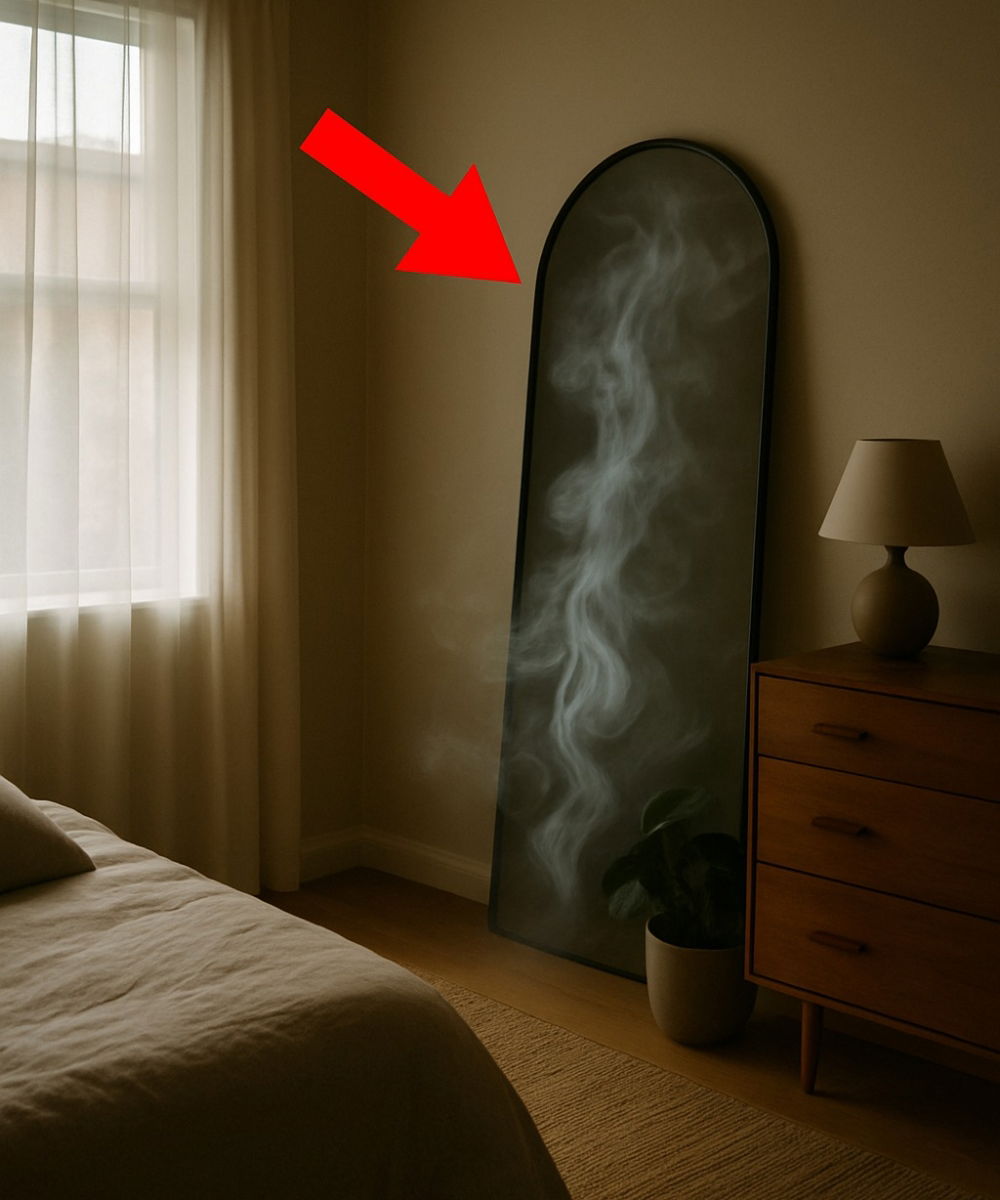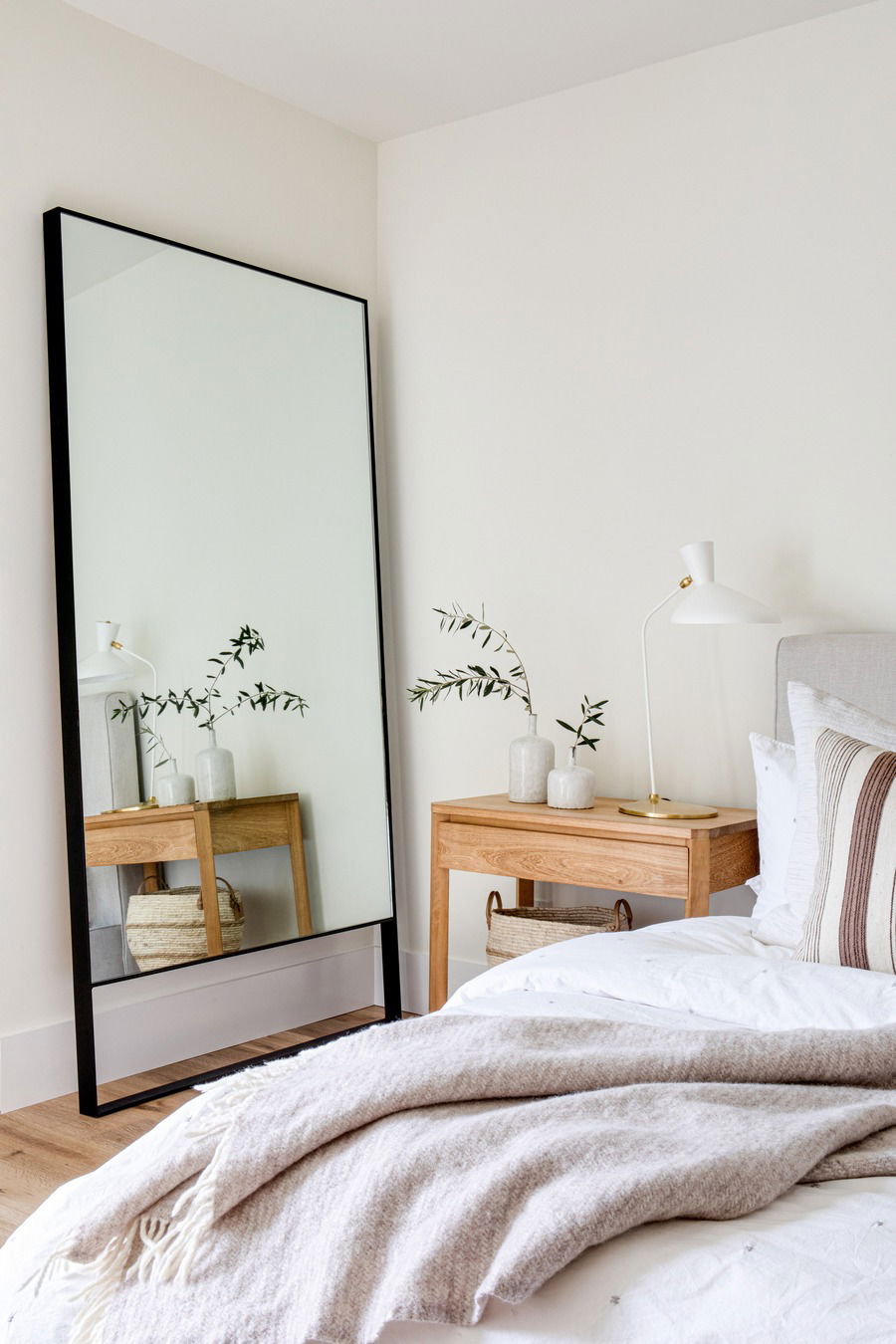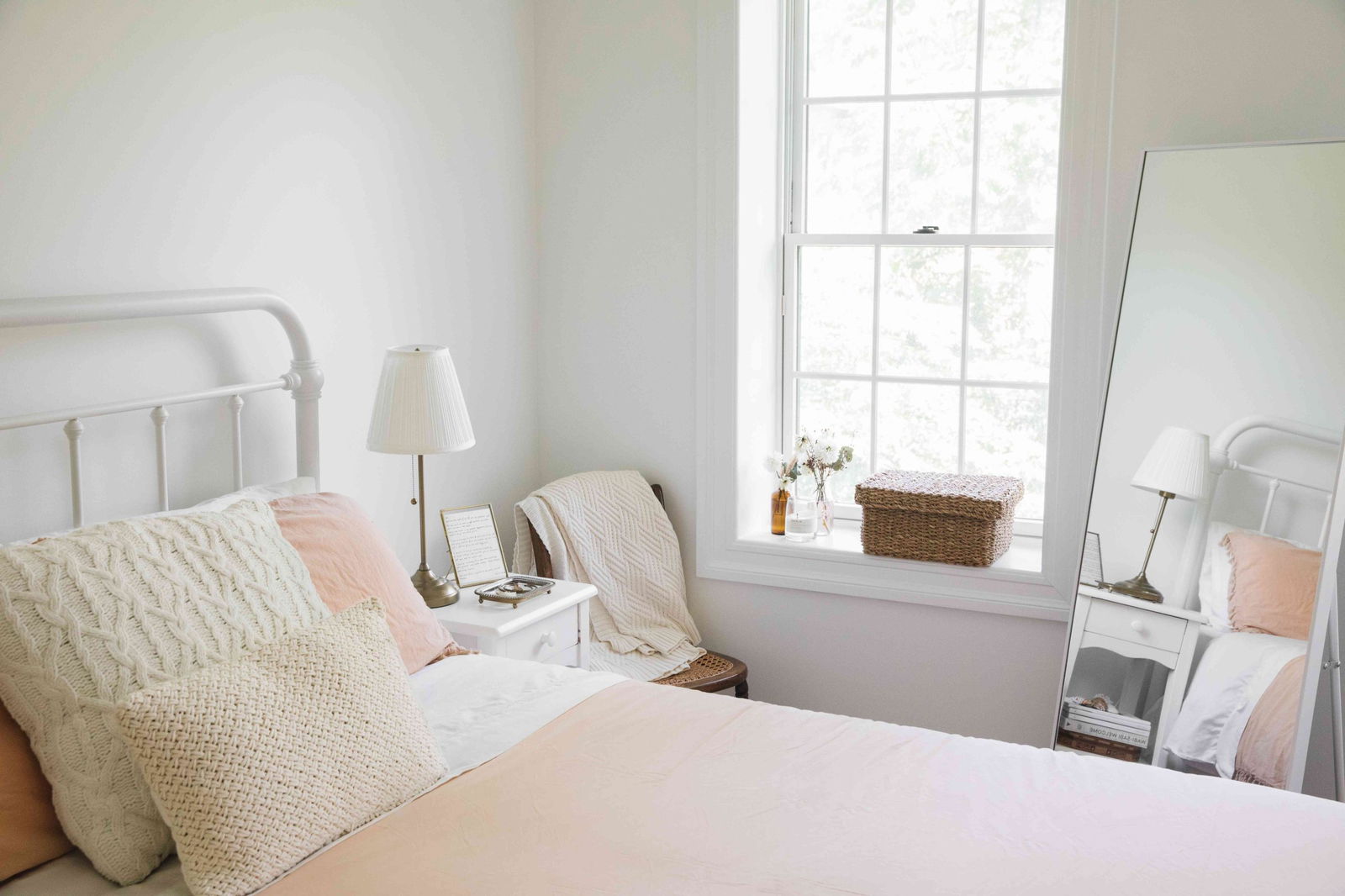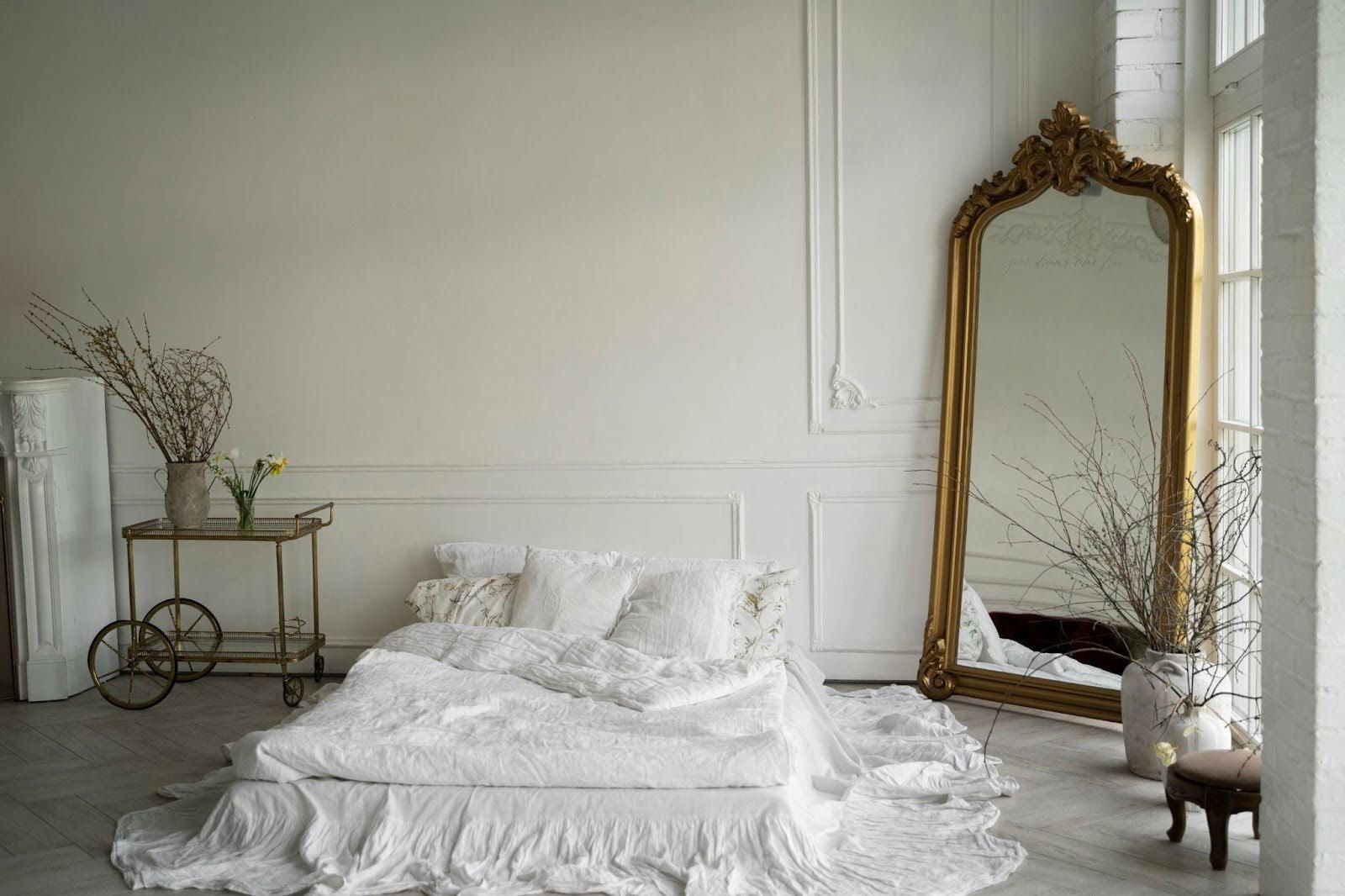
Mirrors are a common fixture in many homes, yet their placement in the bedroom tends to spark mixed reactions. Some people appreciate them for their decorative appeal or practicality, while others worry they might disrupt sleep or affect the room’s energy.
This article delves into the advantages and disadvantages of keeping a mirror in the bedroom and shares tips on how to use them wisely.
Advantages of Bedroom Mirrors
1. Creates a Sense of Space and Light
A well-placed mirror, especially across from a window or on a wall, can visually enlarge a room and enhance natural light—an excellent trick for small or dim bedrooms.
2. Practical for Everyday Use
A full-length mirror in the bedroom makes it easier to get dressed, do your hair, or freshen up without needing to go to another part of the house.

3. Enhances Décor
Mirrors can elevate the aesthetic of a room, lending elegance or character based on their frame, size, and positioning.
Disadvantages and Concerns
1. May Disturb Sleep
Some people find it unsettling to see their reflection while trying to sleep. Mirrors directly facing the bed have been linked to difficulty falling or staying asleep.
2. Feng Shui Beliefs on Energy Flow
According to Feng Shui, mirrors can amplify the energy in a room, potentially leading to emotional instability or relationship tension. It’s generally advised not to have them reflecting the bed.

3. Sense of Being Watched
Large mirrors facing the bed can create the feeling of being observed, which might make it hard for some to relax fully.
Tips for Mirror Placement in the Bedroom
Avoid Facing the Bed: Position the mirror on a side wall or install it inside a closet door.
Cover at Night: If relocating the mirror isn’t an option, draping a cloth over it at bedtime can help reduce restlessness.
Reflect Neatness, Not Clutter: Ensure the mirror doesn’t reflect disorganized or messy areas, as this can add to stress or visual noise.

Conclusion
Mirrors in the bedroom aren’t inherently good or bad—it all depends on their placement, purpose, and how they make you feel. When used thoughtfully, they can be both functional and stylish.
But if they start interfering with your sleep or comfort, consider repositioning or covering them at night for a more restful environment.



















